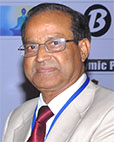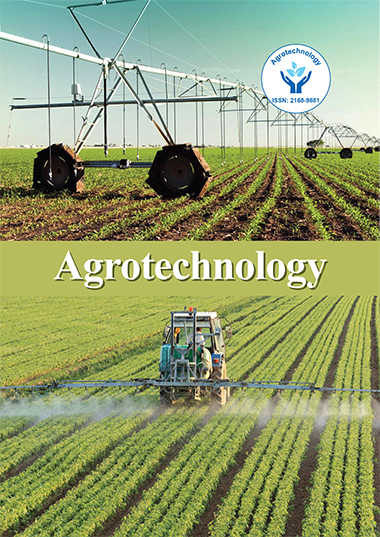Theme: “Innovative thinking for sustainable agriculture and food industry“
Organic Farming 2019
Welcome to Organic Farming 2019!!!
ORGANICFARM-2020 cordially welcomes all the participants and contributors from worldwide to attend “International Conference on Agro ecology and Organic farming” which is going to be held in Osaka, Japan during August 24-25, 2020 across the theme “Explore the latest inventions and research in food and nutrition science“.
We invite you to join us at Agro Ecology & Organic Farming, where you will be sure to have a meaningful experience with scholars from around the world. Generous response and active participation from the Editorial Board Members of conference related Journals as well as from the scientists, researchers and leaders in the field of Agro Ecology & Organic Farming will make this conference as one of the most successful and productive events in 2020.
Food and Agro Ecology & Organic Farming Conference includes prompt keynote presentations, oral talks, poster presentations, delegate views, board talks, workshop and exhibitions. Join us for two intensive and interesting days of discussing contemporary challenges and new advancements in food science and nutritional research. We invite you to contribute and help to shape the event through submissions of your research abstracts, papers and e-posters. Also, high quality research contributions describing original and unpublished results of conceptual, constructive, empirical, experimental, or theoretical work in all areas of Food Science and Nutritional research are cordially invited for presentation at the conference.
Organic Farming 2019 is the reputed conference which aims to provide best platform to explore the emerging strategies and novel technologies in the fields of Organic Farming .
All accepted abstracts will be published in respective Scientific International Journals. Abstracts will be provided with Digital Object Identifier Cross reference. Selected contributions will be published in following subject related international Journals
- Advances in Crop Science and Technology
- Journal of Agrotechnology
- Journal of Horticulture
- Asian Journal of Plant Science & Research
- Journal of Aquaculture Research & Development
Join us for a symphony of outstanding science, and enjoy the spectacular and unique beauty of Bangkok,Thailand.
Why to attend?
With members from around the world focused on learning about Agriculture Science and its advances; this is your best opportunity to reach the largest assemblage of participants from the Agriculture Science and Horticulture community. Conduct presentations, distribute information, meet with current and potential scientists, make a splash with new advancements and developments, and receive name recognition at this 3-day event. World-renowned speakers, the most recent techniques, developments, and the newest updates in Agriculture Science are hallmarks of this conference.
Key Reasons:
- World Class Speakers and Emerging new Talent from across the Globe in Agriculture Industry
- Packed Schedule: Workshops, Multi-track Conference, Expo area and more
- To educate yourself on the Latest Innovations and Novel technologies in the fields of Agri, food, Aqua Live stock , Horticulture, Integrated farming.
- To enhance your ability and skills for the crop improvements, Soil Management, Yield enhancement.
- To network with your fellow researchers in the field of Plant science and Food security .
- To empower yourself to fill the void created by the national shortage of participants.
Target Audience:
- Agriculture Science Faculty, Students, Scientists
- Plant Science Faculty, Students, Scientists
- Animal Science Faculty, Students, Scientists
- Agricultural Universities
- Forestry and Landscaping Scientists
- Agriculture and Plant Associations and Societies
- Business Entrepreneurs
- Training Institutes
- Seed Science and Technology
- Soil science and soil-plant nutrition
- Agriculture & Food Security
- Manufacturing Agricultural Devices Companies
- R&D Laboratories
1 :Plant Breeding
It is the science of changing the traits of plants in order to produce desired characteristics. It has been used to improve the quality of nutrition in products for humans and animals. Plant breeding can be accomplished through many different techniques ranging from simply selecting plants with desirable characteristics for propagation, to methods that make use of knowledge of genetics and chromosomes, to more complex molecular techniques (see cultigen and cultivar). Plant breeding has been practiced for thousands of years, since near the beginning of human civilization. It is practiced worldwide by individuals such as gardeners and farmers, and by professional plant breeders employed by organizations such as government institutions, universities, crop-specific industry associations or research centres
Related Associations | Societies
The European Society of Agricultural Engineers (EurAgEng)| Organic Farming | European Society for Agricultural and Food Ethics | The European Federation of Food Science and Technology | Agricultural biotechnology | Asia Pacific Association of Agricultural Research and Innovations | Asia Pacific Association of Agricultural Research and Innovations | Japan Society of Nutrition and Food Science | European Society for Agricultural and Food Ethics | The European Association of Agricultural Economists |
2 :Agronomy
It is the science and technology of producing and using plants for food, fuel, fiber, and land reclamation. Agronomy has come to encompass work in the areas of plant genetics, plant physiology, meteorology, and soil science. It is the application of a combination of sciences like biology, chemistry, economics, ecology, earth science, and genetics. Agronomists of today are involved with many issues, including producing food, creating healthier food, managing the environmental impact of agriculture, and extracting energy from plants. Agronomists often specialise in areas such as crop rotation, irrigation and drainage, plant breeding, plant physiology, soil classification, soil fertility, weed control, and insect and pest control.
Related Associations | Societies
The European Society of Agricultural Engineers (EurAgEng)| Organic Farming | European Society for Agricultural and Food Ethics | The European Federation of Food Science and Technology | Agricultural biotechnology | Asia Pacific Association of Agricultural Research and Innovations | Asia Pacific Association of Agricultural Research and Innovations | Japan Society of Nutrition and Food Science | European Society for Agricultural and Food Ethics | The European Association of Agricultural Economists |
3 :Agrochemical
An agrochemical or agrichemical, a contraction of agricultural chemical, is a chemical product used in agriculture. In most cases, agrichemical refers to pesticides including insecticides, herbicides, fungicides and nematicides. It may also include synthetic fertilizers, hormones and other chemical growth agents, and concentrated stores of raw animal manure.
Related Associations | Societies
The European Society of Agricultural Engineers (EurAgEng)| Organic Farming | European Society for Agricultural and Food Ethics | The European Federation of Food Science and Technology | Agricultural biotechnology | Asia Pacific Association of Agricultural Research and Innovations | Asia Pacific Association of Agricultural Research and Innovations | Japan Society of Nutrition and Food Science | European Society for Agricultural and Food Ethics | The European Association of Agricultural Economists |
4 :Plant tissue culture
Plant tissue culture is a collection of techniques used to maintain or grow plant cells, tissues or organs under sterile conditions on a nutrient culture medium of known composition. Plant tissue culture is widely used to produce clones of a plant in a method known as micropropagation. Different techniques in plant tissue culture may offer certain advantages over traditional methods of propagation.
Related Associations | Societies
The European Society of Agricultural Engineers (EurAgEng)| Organic Farming | European Society for Agricultural and Food Ethics | The European Federation of Food Science and Technology | Agricultural biotechnology | Asia Pacific Association of Agricultural Research and Innovations | Asia Pacific Association of Agricultural Research and Innovations | Japan Society of Nutrition and Food Science | European Society for Agricultural and Food Ethics | The European Association of Agricultural Economists |
5 :Pesticides and Fertilizers
Pesticides are substances that are meant to control pests, including weeds.The term pesticide includes all of the following: herbicide, insecticides (which may include insect growth regulators, termiticides, etc. nematicide, molluscicide, piscicide, avicide, rodenticide, bactericide, insect repellent, animal repellent, antimicrobial, and fungicide.The most common of these are herbicides which account for approximately 80% of all pesticide use. Most pesticides are intended to serve as plant protection products (also known as crop protection products), which in general, protect plants from weeds, fungi, or insects.A fertilize is any material of natural or synthetic origin (other than liming materials) that is applied to soils or to plant tissues to supply one or more plant nutrients essential to the growth of plants. Many sources of fertilizer exist, both natural and industrially produced.
Related Associations | Societies
The European Society of Agricultural Engineers (EurAgEng)| Organic Farming | European Society for Agricultural and Food Ethics | The European Federation of Food Science and Technology | Agricultural biotechnology | Asia Pacific Association of Agricultural Research and Innovations | Asia Pacific Association of Agricultural Research and Innovations | Japan Society of Nutrition and Food Science | European Society for Agricultural and Food Ethics | The European Association of Agricultural Economists |
6 :Agroecology
Agroecology is the study of ecological processes applied to agricultural production systems. Bringing ecological principles to bear in agroecosystems can suggest novel management approaches that would not otherwise be considered. The term is often used imprecisely and may refer to "a science, a movement, [or] a practice". Agroecologists study a variety of agroecosystems. The field of agroecology is not associated with any one particular method of farming, whether it be organic, integrated, or conventional, intensive or extensive. However, it has much more in common with organic and integrated farming.
Related Associations | Societies
The European Society of Agricultural Engineers (EurAgEng)| Organic Farming | European Society for Agricultural and Food Ethics | The European Federation of Food Science and Technology | Agricultural biotechnology | Asia Pacific Association of Agricultural Research and Innovations | Asia Pacific Association of Agricultural Research and Innovations | Japan Society of Nutrition and Food Science | European Society for Agricultural and Food Ethics | The European Association of Agricultural Economists |
7 :Organic farming
Organic farming is an alternative agricultural system which originated early in the 20th century in reaction to rapidly changing farming practices. Organic farming continues to be developed by various organic agriculture organizations today. It relies on fertilizers of organic origin such as compost manure, green manure, and bone meal and places emphasis on techniques such as crop rotation and companion planting. Biological pest control, mixed cropping and the fostering of insect predators are encouraged. In general, organic standards are designed to allow the use of naturally occurring substances while prohibiting or strictly limiting synthetic substances.
Related Associations | Societies
The European Society of Agricultural Engineers (EurAgEng)| Organic Farming | European Society for Agricultural and Food Ethics | The European Federation of Food Science and Technology | Agricultural biotechnology | Asia Pacific Association of Agricultural Research and Innovations | Asia Pacific Association of Agricultural Research and Innovations | Japan Society of Nutrition and Food Science | European Society for Agricultural and Food Ethics | The European Association of Agricultural Economists |
8 :Crop protection
Crop protection is the science and practice of managing plantdiseases, weeds and other pests that damage agricultural crops and forestry. Agricultural crops include field crops, vegetable crops and fruits. The crops in field are exposed to many factor.
Related Associations | Societies
The European Society of Agricultural Engineers (EurAgEng)| Organic Farming | European Society for Agricultural and Food Ethics | The European Federation of Food Science and Technology | Agricultural biotechnology | Asia Pacific Association of Agricultural Research and Innovations | Asia Pacific Association of Agricultural Research and Innovations | Japan Society of Nutrition and Food Science | European Society for Agricultural and Food Ethics | The European Association of Agricultural Economists |
9 :Improvement of Human Health
The population groups most affected by pesticide use are farmworkers and their families. These people live in communities near the application of toxic pesticides, where pesticide drift and water contamination are common. Farmworkers, both pesticide applicators and fieldworkers who tend to and harvest the crops, come into frequent contact with pesticides. Their families and children are then exposed to these pesticides through contact with them and their clothing. Pregnant women working in the fields unwittingly expose their unborn babies to toxic pesticides. Organic agriculture does not utilize these toxic chemicals and thus eliminates this enormous health hazard to workers, their families, and their communities.
Related Associations | Societies
The European Society of Agricultural Engineers (EurAgEng)| Organic Farming | European Society for Agricultural and Food Ethics | The European Federation of Food Science and Technology | Agricultural biotechnology | Asia Pacific Association of Agricultural Research and Innovations | Asia Pacific Association of Agricultural Research and Innovations | Japan Society of Nutrition and Food Science | European Society for Agricultural and Food Ethics | The European Association of Agricultural Economists |
10 :Food science
Food science is the science of nature devoted to the study of food; it is often confused with "food technology". The Institute of Food Technologists defines food science as "the discipline in which the engineering, biological, and physical sciences are used to study the nature of foods, the causes of deterioration, the principles underlying food processing, and the improvement of foods for the consuming public".[1] The textbook Food Science defines food science in simpler terms as "the application of basic sciences and engineering to study the physical, chemical, and biochemical nature of foods and the principles of food processing".
Related Associations | Societies
The European Society of Agricultural Engineers (EurAgEng)| Organic Farming | European Society for Agricultural and Food Ethics | The European Federation of Food Science and Technology | Agricultural biotechnology | Asia Pacific Association of Agricultural Research and Innovations | Asia Pacific Association of Agricultural Research and Innovations | Japan Society of Nutrition and Food Science | European Society for Agricultural and Food Ethics | The European Association of Agricultural Economists |
11 :Food technology
Food technology is a branch of food science that deals with the production processes that make foods.Early scientific research into food technology concentrated on food preservation. Nicolas Appert’s development in 1810 of the canning process was a decisive event. The process wasn’t called canning then and Appert did not really know the principle on which his process worked, but canning has had a major impact on food preservation techniques.Louis Pasteur's research on the spoilage of wine and his description of how to avoid spoilage in 1864 was an early attempt to apply scientific knowledge to food handling. Besides research into wine spoilage, Pasteur researched the production of alcohol, vinegar, wines and beer, and the souring of milk. He developed pasteurization—the process of heating milk and milk products to destroy food spoilage and disease-producing organisms. In his research into food technology, Pasteur became the pioneer into bacteriology and of modern preventive medicine.
Related Associations | Societies
The European Society of Agricultural Engineers (EurAgEng)| Organic Farming | European Society for Agricultural and Food Ethics | The European Federation of Food Science and Technology | Agricultural biotechnology | Asia Pacific Association of Agricultural Research and Innovations | Asia Pacific Association of Agricultural Research and Innovations | Japan Society of Nutrition and Food Science | European Society for Agricultural and Food Ethics | The European Association of Agricultural Economists |
12 : Agricultural Biotechnology
Agricultural biotechnology, also known as agritech, is an area of agricultural science involving the use of scientific tools and techniques, including genetic engineering, molecular markers, molecular diagnostics, vaccines, and tissue culture, to modify living organisms: plants, animals, and microorganisms. Crop biotechnology is one aspect of agricultural biotechnology which has been greatly developed upon in recent times. Desired trait are exported from a particular species of Crop to an entirely different species. These transgene crops possess desirable characteristics in terms of flavor, color of flowers, growth rate, size of harvested products and resistance to diseases and pests.
Related Associations | Societies
The European Society of Agricultural Engineers (EurAgEng)| Organic Farming | European Society for Agricultural and Food Ethics | The European Federation of Food Science and Technology | Agricultural biotechnology | Asia Pacific Association of Agricultural Research and Innovations | Asia Pacific Association of Agricultural Research and Innovations | Japan Society of Nutrition and Food Science | European Society for Agricultural and Food Ethics | The European Association of Agricultural Economists |
13 :Plant Nursery
A nursery is a place where plants are propagated and grown to usable size. They include retail nurseries which sell to the general public, wholesale nurseries which sell only to businesses such as other nurseries and to commercial gardeners, and private nurseries which supply the needs of institutions or private estates.Nurseries may supply plants for gardens, for agriculture, for forestry and for conservation biology.
Related Associations | Societies
The European Society of Agricultural Engineers (EurAgEng)| Organic Farming | European Society for Agricultural and Food Ethics | The European Federation of Food Science and Technology | Agricultural biotechnology | Asia Pacific Association of Agricultural Research and Innovations | Asia Pacific Association of Agricultural Research and Innovations | Japan Society of Nutrition and Food Science | European Society for Agricultural and Food Ethics | The European Association of Agricultural Economists |
Agriculture can facilitate economic conditions, hike earnings and improve food security for 80% of the world's poor, who work mainly in farming. With modern agricultural techniques, the market is increasing using improved seeds, chemicals, and fertilizers. Also, the employment of sensors and increasing adoption of livestock face recognition is facilitating the market growth. Increasing support from the government for the development of new farming techniques and global awareness regarding the benefits of agriculture over the years are expected to boost the growth of the agriculture market during the future period.
The modern world has substituted home-cooked food with processed food, resulting in the growth of the processed food industry. The global food processing equipment market is driven by the increasing consumer demand for processed food, focus on food safety and safety of workers, growing need to increase productivity, increasing the focus of food manufacturers to cut down manufacturing cost, and government support to push food processing sector.
Scope and Importance
Agriculture, food, and aquaculture are a significant source of national income for the developing countries. The global food technology market expands drastically by 2022 the expected growth of food technology market is over $250.43 billion. The global market for probiotic ingredients and supplements has reached $23.1 billion in 2012, $27.1 billion in 2013 and it may reach $36.7 billion in 2018. The processed food industries are also valued at over $2 trillion dollars globally and consist of over 400,000 businesses.

Major Agricultural Industries in Worldwide:
The number of agricultural industries and services is growing at a faster rate in all around the world covering Asia, Europe, Africa, North and South America which are major regions of the world. Top 20 industries with their country name have been enlisted below:
• Kerry Group, Ireland
• Vilmorin, France
• Adler Seeds, US
• China Agri-Industries Holdings, China
• ContiGroup Companies, Belgium
• Case Corporation, US
• Golden State Foods, US
• Heritage Foods, India
• Noble Group, South America
Agriculture Research centers worldwide:
• Consultative Group for International Agricultural Research, France
• Africa Rice Center, Benin
• Bioversity International, Italy
• Center for International Forestry Research (CIFOR), Indonesia
• International Center for Tropical Agriculture (CIAT), Colombia
• International Center for Agricultural Research in the Dry Areas (ICARDA), Lebanon
• International Crops Research Institute for the Semi-Arid Tropics (ICRISAT), India
• International Food Policy Research Institute (IFPRI), United States
• International Institute of Tropical Agriculture (IITA), Nigeria
• International Livestock Research Institute (ILRI), Kenya
Global Agriculture Universities:
• University of California, U.S.
• China Agricultural University, China
• Universidade de São Paulo, Brazil
• Ghent University, Belgium
• Aarhus University, Denmark
• University Hohenheim, Germany
• University of Guelph, Canada
• University of Copenhagen, Denmark
• University of Western Australia, Australia
• University of Helsinki, Finland
• Swedish University of Agricultural Sciences, Sweden
• University of Valencia, Spain
Conference Series LLC LTD encouraged the “11th World Congress on Plant Biotechnology and Agriculture", during March 05-07, 2018 at Paris, France, which was an extraordinary achievement. Discernible keynote speakers from multitudinal assumed establishments and affiliations kept an eye on the get-together with their splendid proximity. The respected guests, keynote speakers and masters shared their innovative investigation and boundless experience data and palaver on various latest and invigorating advancements in each part of Plants & Agriculture examination at the platform of AGRI WORLD 2018.
This meeting has been directed to the point and the straight out goal of advancing the advancements of new recognitions and thoughts for investigating the abnormal state of learning came to by academic group on AGRI WORLD 2018. This celebrated event facilitated by Conference Series LLC LTD was set apart with the participation of youthful and splendid specialists, scientists, researchers, business delegates and gifted understudy groups.
The meeting was sorted out around the subject “Innovations and Advancements in Plant & Agricultural Research ". The occasion embedded a firm connection of up and coming systems in the field of Agriculture Conference with mainstream researchers. The calculated and relevant learning shared, will likewise encourage authoritative joint efforts to nurture scientific accelerations.
AGRI WORLD 2018 Organizing Committee extends its gratitude and congratulates the Honorable Moderators of the conference, Dr. Fabienne Trolard, INRA-UAPV, UMR EMMAH, France and Dr. Sabry G Elias, Oregon State University, USA for their preeminent contribution towards the smooth functioning of this esteemed event.
Conference Series LLC LTD also acknowledges the help of the Honorable Chairs Jean-Francois Hocquette, INRA (French National Institute for Agricultural Research), France and John Jemison, University of Maine, USAand Co-Chairs Jerry Johnson, Colorado State University, USA and Alvaro Sotomayor, Forest Research Institute, Chile whose support brought this event to its grand success.
Conference Series LLC LTD has taken the privilege of felicitating AGRI WORLD 2018 Organizing Committee Members and Keynote Speakers of the meeting whose support and attempts made the social occasion to move in the method of achievement. Conference Series LLC LTD offers thanks to each individual member for the colossal stunning reaction. This moves us to continue dealing with events and get-togethers for additionally explore in the field of Agriculture and its Technology.
The eminent personalities in the conference were Elie K Barbour, King Abdulaziz University, KSA, Petras Lazauskas, Aleksandras Stulginskis University, Lithuania, Pooran Chand, Sardar Vallabhbhai Patel University of Agriculture & Technology, India, Sangwani Gondwe Makoko, African Institute of Corporate Citizenship, Malawi, Ahu Altınkut Uncuoglu, Marmara University, Turkey, Yıldız Aydın, Marmara University, Turkey, Thuzar Linn, Ghent University, Belgium and many more.
Poster Presentation:
AGRI WORLD 2018 gladly presents the Poster Award Competition Winner:
Dr. Hitomi Takei, University of Tsukuba, Japan.
The Conference ends up being an extraordinary open air theatre for assignment of most recent data with the cooperation of more than 120 Agritech experts. The participants profited from more than 20 addresses introduced by 20 provincial and worldwide speakers. The complete logical system and exercises offered for the current year were to a great degree superb. Every year it gives the best stage to Agritech scientists, Researchers, Plant Science Faculty, Students, furthermore Plant biotech experts and industry specialists of the world to redesign learning, arrange, associate and create profession.
Last but not the least Conference Series LLC LTD wishes to acknowledge with its deep, sincere gratitude all the supporters from the Editorial Board Members of our Open Access Journals, Keynote speakers, Honorable guests, Valuable speakers, students, delegates and special thanks to the Media partners for their promotion to make this event a huge success.
Conference Series LLC LTD therefore is glad to announce its 12th World Congress on Plant Biotechnology and Agriculture , which will be held during June 12-13, 2019 Prague, Czech Republic. We cordially welcome all the eminent researchers, students and delegates to take part in this upcoming conference to witness eminent scientific discussions and contribute to the future innovations in the field of AGRI WORLD 2019
We are delighted to welcome you to join us at 12th World Congress on Plant Biotechnology & Agriculture to be held during April 8-09, 2019 | Prague, Czech Republic
Conference Highlights
- Principles of Organic Farming
- Farm Machinery Valuation
- Integrated Organic Farming
- Fertilizer and Pesticide
- Farm Financial Accounting
- Livestock Farming Management
- Farm Buildings and Regulations
- Crop Protection
- Biological Management
- Agriculture and Environment
- Farming sytems and Sustainable Agriculture
- Environmental Sustainability and Food Security
- Improvement of Human Health
- Livestock and Poultry Production
- Recycling of Organic wastes
To share your views and research, please click here to register for the Conference.
To Collaborate Scientific Professionals around the World
| Conference Date | Oct 30-31, 2019 | ||
| Sponsors & Exhibitors |
|
||
| Speaker Opportunity Closed | Day 1 | ||
| Poster Opportunity Closed | Click Here to View | ||
Useful Links
Special Issues
All accepted abstracts will be published in respective Our International Journals.
- Journal of Advances in Crop Science and Technology
- Journal of Agricultural Science and Food Research
- Journal of Agrotechnology
Abstracts will be provided with Digital Object Identifier by






















